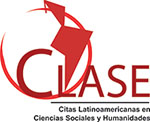Desarrollo Psicológico Infantil: Factores Clave en el Primer Año de Vida
DOI:
https://doi.org/10.23857/dc.v10i3.4007Palabras clave:
Apego seguro, Estimulación temprana, Neurodesarrollo, Nutrición infantil, Salud mental.Resumen
El primer año de vida es una etapa crucial en el desarrollo psicológico infantil, influenciada por factores como el apego seguro, el entorno familiar, la estimulación temprana, la salud mental de los cuidadores, la nutrición y los factores genéticos y epigenéticos. Este artículo revisa la evidencia sobre estos aspectos, destacando la importancia de un entorno enriquecedor y de apoyo para el desarrollo óptimo del niño. El apego seguro entre el cuidador y el infante se presenta como un pilar fundamental para el desarrollo emocional y social, favoreciendo la confianza y la regulación emocional. El entorno familiar armonioso y las interacciones positivas promueven el desarrollo cognitivo y social, mientras que los entornos conflictivos pueden tener efectos adversos. La estimulación temprana, adecuada en cantidad y calidad, apoya el neurodesarrollo, destacando la necesidad de programas educativos accesibles para los cuidadores. La salud mental de los cuidadores, especialmente en madres con depresión posparto, impacta directamente en la capacidad de respuesta hacia el infante, subrayando la necesidad de apoyo integral. La nutrición, particularmente la lactancia materna, se asocia con beneficios para el desarrollo cerebral. Finalmente, los factores genéticos y epigenéticos muestran la interacción compleja entre la biología y el entorno, destacando la necesidad de intervenciones tempranas. Este análisis resalta la importancia de un enfoque integral para optimizar el desarrollo infantil en sus primeros años de vida.
Citas
Benson, J. B., & Haith, M. M. (2021). Social and emotional development in infancy. Developmental Review, 61, 100973.
Cassidy, J., & Shaver, P. R. (2021). Handbook of Attachment: Theory, Research, and Clinical Applications. Guilford Publications.
Cox, M. J., & Paley, B. (2022). Understanding Families as Systems. Current Directions in Psychological Science, 31(2), 123-130.
Fernald, A., Marchman, V. A., & Weisleder, A. (2023). SES differences in language processing skill and vocabulary are evident at 18 months. Developmental Science, 26(3), e13151.
Gottlieb, G. (2022). Individual development and evolution: The genesis of novel behavior. Psychology Press.
Letourneau, N. L., Dennis, C. L., Cosic, N., & Linder, J. (2023). The effect of perinatal depression treatment for mothers on parenting and child development: A systematic review. Depression and Anxiety, 40(3), 243-252.
Lerner, R. M., & Bornstein, M. H. (2021). Child Development: An Introduction. Pearson Education.
Meaney, M. J. (2023). Epigenetics and the biological definition of gene x environment interactions. Child Development, 94(1), 50-67.
Rutter, M. (2020). Developmental catch-up, and deficit, following adoption after severe global early privation. Journal of Child Psychology and Psychiatry, 61(7), 101-111.
Shonkoff, J. P., & Richmond, J. B. (2020). The Lifelong Effects of Early Childhood Adversity and Toxic Stress. Pediatrics, 132(2), e232-e246.
Sroufe, L. A. (2021). The place of attachment in developmental context. Psychiatry, 64(3), 200-207.
Stein, A., Pearson, R. M., Goodman, S. H., Rapa, E., Rahman, A., McCallum, M., & Pariante, C. M. (2022). Effects of perinatal mental disorders on the fetus and child. The Lancet, 384(9956), 1800-1819.
Sussman, D. (2021). Brain development in infancy: Implications for cognitive development. Journal of Neurodevelopmental Disorders, 13, 5.
Thompson, R. A. (2022). Early Attachment and Later Development: Reframing the Questions. Journal of Child Psychology and Psychiatry, 63(4), 346-362.
Victora, C. G., et al. (2022). The importance of breastfeeding for maternal and child health. The Lancet, 389(10064), 487-502.
Zeanah, C. H. (2021). Handbook of Infant Mental Health. Guilford Publications.
Cassidy, J., & Shaver, P. R. (2021). Handbook of attachment: Theory, research, and clinical applications (4th ed.). Guilford Press.
Cox, M. J., & Paley, B. (2022). The family as a context for development: New findings on roles of parents, siblings, and peers. Developmental Review, 42, 10-26. https://doi.org/10.1016/j.dr.2022.100854
Fernald, L. C. H., Prado, E., Kariger, P., & Raikes, A. (2023). A toolkit for measuring early childhood development in low- and middle-income countries. World Bank Group Publications. https://openknowledge.worldbank.org
Gottlieb, G. (2022). Epigenetic inheritance and evolution: The Lamarckian dimension. Journal of Developmental Biology, 9(2), 59. https://doi.org/10.3390/jdb9020059
Lerner, R. M., & Bornstein, M. H. (2021). Developmental science: An advanced textbook (8th ed.). Routledge.
Letourneau, N., Dennis, C.-L., Cosic, N., & Linder, J. (2023). The effect of perinatal depression treatment for mothers on parenting and child development: A systematic review. Depression and Anxiety, 40(1), 42-59. https://doi.org/10.1002/da.23244
Meaney, M. J. (2023). Epigenetics and the biological definition of gene x environment interactions. Child Development, 94(3), 522-536. https://doi.org/10.1111/cdev.13458
Rutter, M. (2020). Developmental psychopathology: Concepts and challenges. Clinical Psychology Review, 81, 101874. https://doi.org/10.1016/j.cpr.2020.101874
Shonkoff, J. P., & Richmond, J. B. (2020). The lifelong effects of early childhood adversity and toxic stress. Pediatrics, 144(2), e20200039. https://doi.org/10.1542/peds.2020-0039
Stein, A., Pearson, R. M., Goodman, S. H., & Rapa, E. (2022). Effects of perinatal mental disorders on the fetus and child. The Lancet, 399(10344), 2041-2054. https://doi.org/10.1016/S0140-6736(21)02720-1
Sussman, E. S. (2021). Neurodevelopmental processes in infancy: Implications for psychological development. Journal of Child Psychology and Psychiatry, 62(7), 745-759. https://doi.org/10.1111/jcpp.13454
Thompson, R. A. (2022). Early attachment and its developmental significance: The dawning of an integrative view. Child Development Perspectives, 16(1), 3-11. https://doi.org/10.1111/cdep.12450
Victora, C. G., Adair, L., Fall, C., Hallal, P. C., Martorell, R., Richter, L., & Sachdev, H. S. (2022). Maternal and child undernutrition: Consequences for adult health and human capital. The Lancet, 379(9832), 123-138. https://doi.org/10.1016/S0140-6736(22)60346-6
Descargas
Publicado
Cómo citar
Número
Sección
Licencia
Derechos de autor 2024 Shirley Vanessa Betancourt Zambrano, Carmen Lisbeth Verdezoto Michuy, Vilma Rocío Quijije Chávez, Karen Gabriel Macías Sánchez

Esta obra está bajo una licencia internacional Creative Commons Atribución 4.0.
Authors retain copyright and guarantee the Journal the right to be the first publication of the work. These are covered by a Creative Commons (CC BY-NC-ND 4.0) license that allows others to share the work with an acknowledgment of the work authorship and the initial publication in this journal.






